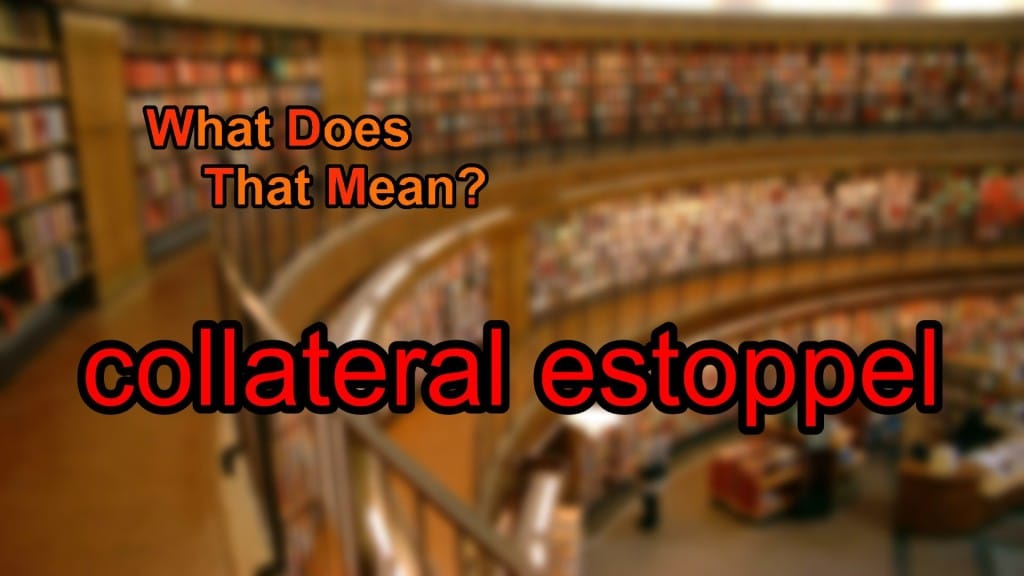A matter concerning environmental cleanup was tried before a referee pursuant to stipulation and judgment was entered by the trial court adopting the referee’s recommendations. Finding numerous errors, the Court of Appeal reversed. First, the appellate court found extrinsic evidence should not have been introduced in interpreting the contract. ng Second, the appellate court concluded […]
Even When Privilege Log Is Inadequate, Judicially Forced Waiver Of Privileged Documents Not Authorized.
May a trial court find a waiver of the attorney-client privilege and work product doctrine when the objecting party submits an inadequate privilege log that fails to provide sufficient information to evaluate the merits of the objections?
Petition Denied; Had It Been Granted, It Would Have Resulted In 1,491 Mini-Trials.
A mass tort litigation over environmental contamination beneath a housing track settled, and the court was called upon to address whether a government-ordered environmental cleanup was part of the settlement consideration, and whether a good faith settlement could be approved without an individualized allocation of the settlement proceeds among the numerous plaintiffs and between their economic and noneconomic damages.
Saying “No, You Can’t Have The Documents,” Can Be Costly.
A shipping association requested documents from the port agent for a few California ports under the Public Records Act [Government Code section 6250, et seq.]. A port agent refused and the association filed a Writ of Mandate, which the trial court granted and which order the Court of Appeal declined to overturn.
Use Of Judicially Noticed Records In Ruling On A Demurrer.
The Court of Appeal held: Plaintiffs sued defendants for trade secret misappropriation. The trial court sustained defendants’ demurrer on the ground that plaintiffs’ claims were barred by the Taiwanese statute of limitations. On appeal, plaintiffs contend the trial court erred in sustaining the demurrer because it resolved disputed issues of fact based on information from judicially noticed documents.
Contract Negotiated In A Foreign Language.
Plaintiffs purchased a used automobile after negotiations were conducted in Spanish. When a dispute arose, plaintiffs sued the automobile sales company. Defendant moved for arbitration, attaching a Spanish translation of the underlying sales contract, which included an arbitration agreement, in its petition. Plaintiffs produced a Spanish translation of the underlying sales contract, which contained no arbitration agreement.
Court Declined To Create A New Exception To The Collateral Estoppel Rule.
Years ago, the juvenile court terminated plaintiff’s parental rights to her daughter and the Court of Appeal affirmed, rejecting plaintiff’s contention of ineffective assistance of counsel by her appointed juvenile dependency lawyers. Thereafter, plaintiff filed the current action for legal malpractice against the same lawyers. The trial court granted the lawyers’ motion for summary judgment.
“Tired Mothers Find That Spanking Takes Less Time Than Reasoning And Penetrates Sooner To The Seat Of Memory.” — Will Durant.
A mother of two children, one born in 2007 and the other in 2010, disciplined the children “by making them do chores, by scolding them verbally, by denying them privileges. . . and by threatening to spank them. On rare occasions when these techniques did not work, she would spank the children on the buttocks with her bare hand or with a sandal.
No Motion To Quash Permitted By Tenant Served With A Three Day Notice To Quit.
The issue is whether the tenant in an unlawful detainer action may bring a motion to quash service of the summons on the ground that the landlord did not properly serve the three-day notice to pay rent or quit required under the Unlawful Detainer Act. [Civ.Proc. §§ 1159-1179a.]
No Landlord Liability For Unknown Dangerous Condition Brought Onto Premises By Tenant.
A landscaper was injured by explosives brought onto the property by a tenant of the property’s owner. The trial court entered summary judgment in favor of the owner of the residence. On appeal, the plaintiff contended a month-to-month tenancy provides the landlord the right to enter and inspect the property at periodic intervals.
- « Previous Page
- 1
- 2
- 3
- 4
- 5
- …
- 105
- Next Page »







